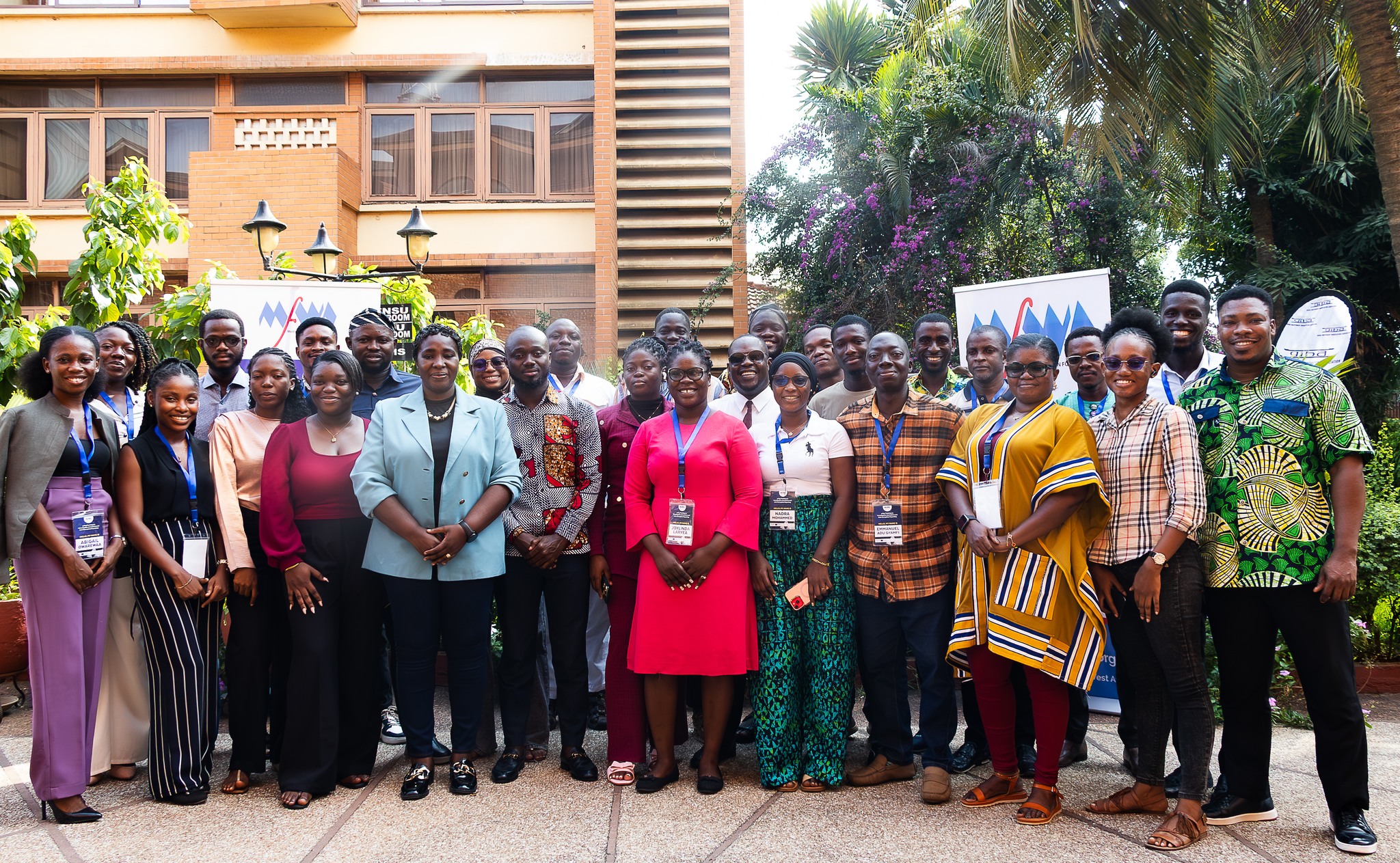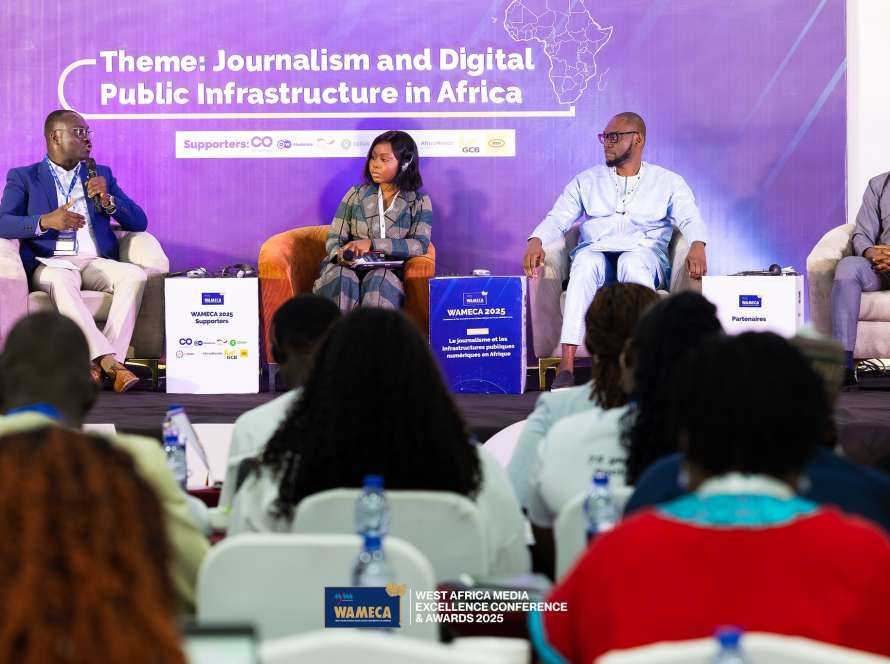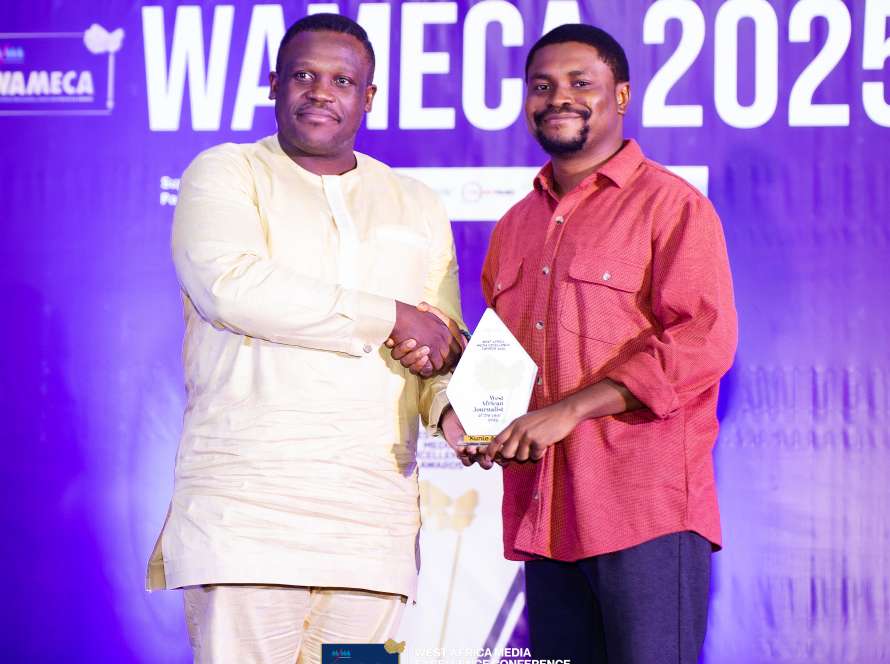The Media Foundation for West Africa (MFWA) has trained 30 journalists from the Ashanti, Greater Accra, and five northern regions of Ghana on the use of the Right to Information (RTI) Law in investigative reporting, to enhance their capacity to promote transparency and accountability through evidence- based journalism.
The three-day training, held form October 21 to 23, 2025 at the Coconut Grove Hotel in Accra, is the second of three capacity-building workshops under the MFWA’s project titled: “Countering Corruption through Accountability Journalism and Improved Freedom of Expression Environment in Ghana”, which seeks to strengthen the capacity of journalists, particularly those engaged in investigative reporting, to produce impactful stories that expose corruption and promote good governance. The project also aims to improve the freedom of expression environment in Ghana.
This initiative is implemented under the Participation, Accountability, Integrity for a Resilient Democracy (PAIReD) programme, commissioned by the German Federal Ministry for Economic Cooperation and Development (BMZ), co-financed by the European Union (EU) and the Swiss State Secretariat for Economic Affairs (SECO), and implemented by GIZ in cooperation with Ghana’s Ministry of Finance.
The first training focused on Investigative Journalism and Anti-Corruption Reporting, while the third will centre on Data Journalism and Fact-Checking.
The Training on the Use of RTI Law in Investigative Reporting was facilitated by Zakaria Tanko Esq., Lecturer at the University of Media, Arts and Communication, Kwaku Krobea Asante, Programme Manager of the Independent Journalism Programme at the MFWA, and Dr. Aurelia Ayisi, Lecturer at the Department of Communication Studies, University of Ghana, who handled sessions on the gender-differentiated dimensions of corruption.
Enhancing Investigative Journalism through the RTI Law
Facilitator Zakaria Tanko Esq. led sessions on understanding global and African perspectives on RTI laws, the structure and scope of Ghana’s RTI Law, and its implications for investigative journalism. He also guided participants through practical exercises on navigating exemptions, appeals, and drafting effective RTI requests to obtain relevant public information for investigative stories.
Participants further explored issues of media law and ethics, including defamation, privacy, data protection, and intellectual property, as well as the importance of professionalism and legal compliance in investigative reporting.
Practical Approaches to RTI-Based Investigations
Kwaku Krobea Asante, Programme Manager of the Independent Journalism Programme at the MFWA facilitated interactive sessions where participants drafted RTI requests based on real investigative story ideas. He also shared insights and experiences on overcoming institutional resistance, gathering data, and authenticating information obtained through the RTI process.
On gauging the outcome and value of the training, pparticipants lauded the practical nature of the training, highlighting that the use of real issues and story examples made it easier to understand how the RTI Law works in practice.
“The strengths of the training lie in the practical engagement and the use of real issues and stories to exhibit how RTI works. The session on gender fully utilized the above, which was insightful and easily relatable,” one participant from Ashanti Region shared.
Another participant emphasized the confidence gained from the training, stating:
“My main strength is the fact that I’m now able to write an RTI request and know that I can equally appeal it when officers are not obliging.”
Additionally, the diversity of topics and the expertise of facilitators also stood out for many of the participants.
“The topics selected and the knowledge field of the facilitators made it easy for participants to understand and learn. The experiences shared by Kweku also ignited participants’ motivation,” she added.
Addressing Gender and Power Dynamics in Corruption
On the final day, Dr. Aurelia Ayisi led discussions on gender-differentiated corruption, exploring how gender roles and power imbalances influence corruption and access to justice. She trained participants on safely investigating and reporting sexual corruption cases, using gender-disaggregated data to strengthen corruption stories, and applying trauma-sensitive approaches when interviewing victims.
Building a Stronger Culture of Accountability Journalism
At the closing session, Rosemond Aryeetey, Senior Programme Manager for the Media for Democracy and Good Governance Programme at MFWA, commended participants for their active engagement and urged them to apply the skills gained to produce investigative stories that promote transparency and accountability.
According to her, “this training is part of our continuous effort to empower journalists to use legal tools such as the RTI Law to demand accountability and contribute to building a more transparent governance system in Ghana,”
The training concluded with participants pledging to leverage the RTI Law to enhance their investigations and expose corruption at various levels of governance.






